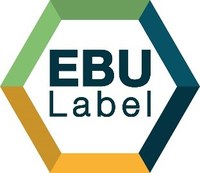
Unibo structures involved:
Department of Chemistry "Giacomo Ciamician" - CHIM
Department of Industrial Chemistry “Toso Montanari” – CHIMIND
Department of Agricultural and Food Sciences - DISTAL
Scientific manager: Paola Galletti
Unibo Team: Fabrizio Cavani, Paola Galletti, Brunella Morandi
Project Web page: https://european-bioeconomy-university.eu/education/ebu-label/
Erasmus+ Action type: Cooperation for innovation and the exchange of good practices Strategic Partnerships for higher education
Project reference: 2020-1-DE01-KA203-005718
Start Date: 1 September 2020
End Date: 31 August 2023
Budget
Total: € 443,284
UNIBO: € 69,377
Coordinator: Universitaet Hohenheim (DE);
Partners:
- Universitaet Fuer Bodenkultur Wien (AT)
- Alma Mater Studiorum - Università Di Bologna (IT)
- ITA-Suomen Yliopisto (FI)
- Institut National des Sciences et Industries Du Vivant et De l'environnement – Agroparistech (FR)
- Wageningen University (NL)
Summary
The 3-year project EBU label is a strategic Partnership of Erasmus+. The project has been developed in the framework of the European Bioeconomy University, EBU alliance, constituted by Paris Institute of Technology for Life, Food and Environmental Sciences - AgroParisTech (APT), University of Natural Resources and Life Sciences Vienna(BOKU), University of Eastern Finland (UEF), University of Bologna (UNIBO), Wageningen University and Reseach (WUR) and University of Hohenheim (UHOH).
The education offered at the six EBU institutions is already leading the bioeconomy education in Europe, and with this project, the EBU aims at integrating the following bioeconomy-relevant skills, competences and expertise into the manifold study programs at the EBU institutions, in addition to the disciplinary expertise:
- inter- and transdisciplinary skills based on a cross-sectorial mindset;
- sustainability competences including system thinking, strategic competence, normative competence;
- personal and interpersonal skills including critical thinking, problem-solving, creativity, empowerment, reflection, participation, motivation as well as anticipation and transition knowledge;
- international (digital) communication and collaboration skills;
- management and entrepreneurial skills;
- assessment, decision making, regulation and policy skills.
These skills will be integrated into existing master curricula at the EBU institutions through:
- development and implementation of the EBU qualification supplement. This supplement will be granted to the master students of the six EBU institutions to upgrade and connect existing, disciplinary university curricula on master level with inter- and transdisciplinarity, cross-sectoral collaboration and sustainability competences to educate the needed agents of the bioeconomy transition and to increase visibility of bioeconomy graduates on the job market;
- conceptualization of the “EBU student journey”, in which the master students will strongly engage with each other across the EBU institutions by collaboratively working on real-world bioeconomic challenges based on a mix of several methodological approaches to obtain required knowledge, skills and competences;
- establishment of an interactive online platform easily accessible by all members of the participating universities potential cooperating partners that covers academic/subject specific, challenge based, horizontal skills related and organisational inputs;
- two pilot journeys, in which 72 master students will participate, will take place during 2022 and 2023. During these pilot journeys, there will be continuous assessment and improvements that will serve as input for a manual of best practices in the bioeconomy education that will be a base for the future EBU student journeys and the bieconomy education in Europe.
Master students at the EBU, becoming the future professionals in the bioeconomy sector, will be prepared to tackle current and future environmental and societal challenges. EBU graduates will be able to analyze and consider the dynamics in industry, research and society for the development and implementation of innovations along biobased value chains, novel biobased products and new business models to drive the transition towards a circular and sustainable Bioeconomy.
